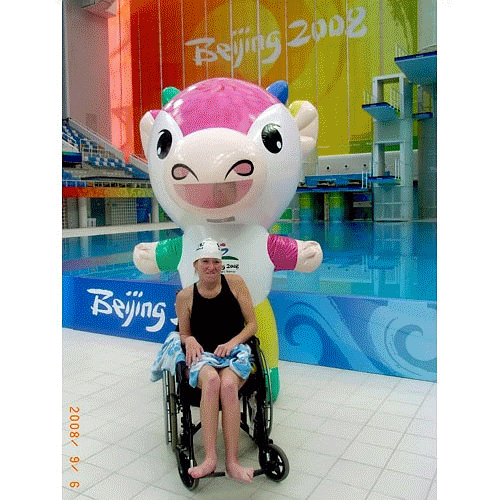Latest News Archive
Please select Category, Year, and then Month to display items
14 November 2024
|
Story André Damons
|
Photo André Damons
 Staff members from the Directorate Research Development (DRD) at the University of the Free State; Palesa Mgaga, second from right, Tebogo Machethe, centre, and Charelise van Staden, second from right, were thanked for hosting the launch of the Khoebo Innovation Promotion Programme. They are pictured with colleagues from the IDC’s Samkelisiwe Mtsewu, left, and Thato Mogopodi, far right.
Staff members from the Directorate Research Development (DRD) at the University of the Free State; Palesa Mgaga, second from right, Tebogo Machethe, centre, and Charelise van Staden, second from right, were thanked for hosting the launch of the Khoebo Innovation Promotion Programme. They are pictured with colleagues from the IDC’s Samkelisiwe Mtsewu, left, and Thato Mogopodi, far right.
The University of the Free State (UFS), represented by the Directorate Research Development (DRD), played host to the Department of Trade Industry and Competition (dtic) and the Industrial Development Corporation (IDC) for the launch of its Khoebo Innovation Promotion Programme (KIPP).
The launch took place on 5 November in the Sasol Library on the Bloemfontein Campus. Tebogo Machethe, Director: Research Contracts and Innovation at the DRD, said its role was to expose the university researchers to different opportunities and programmes for funding from the IDC and the dtic. It also allowed the researchers to engage potential funders in order to understand what funders look for in a project when considering funding it.
“The aim of IDC KIPP is to assist local entrepreneurs and small to medium enterprises with commercialisation funding. The KIPP offers capital and business support to SMMEs during the early stages of commercialisation with particular emphasis on township and rural entrepreneurs,” said Machethe.
Address uneven distribution of economic development
KIPP is a dtic programme but is managed by the IDC and aims to enable early-stage innovative SMEs to penetrate the market with their locally developed innovations, resulting in a more competitive economic environment and thereby facilitating economic growth in the economy.
According to Machethe, who welcomed the guests, participants and presenters to the launch, some of the funding is geared towards the development of university innovations. Though the focus was on the KIPP launch, he continued, the discussions also encompassed other forms of funding that are available and more geared towards the university innovation.
His address was centred around the university's Vision 130 and how it supports innovation and the entire innovation ecosystem, which seeks to shift the emphasis to research impact, embracing both knowledge and societal impact. Vision 130 identifies the need for a greater focus on collaborative research, research that can attract large-scale funding in niche areas where the university is seen as a national and global leader.
Samkelisiwe Mtsewu, KIPP Account Manager at the IDC, said the programme was introduced to address the uneven distribution of economic development across the country. She said with its capacity, the KIPP programme can contribute to addressing the uneven distribution of economic development.
Sarah, our own champion
2008-11-05
 |
| Sarah Shannon at the Paralympic Games in Beijing |
Sarah Shannon, a second-year student in the Postgraduate Certificate in Education, has been involved in disability sport on national level for the past 12 years. Sarah has cerebral palsy.
In 1996 she participated at the South African National Championships for the physically disabled for the first time, entering for several sporting codes and winning five gold medals. In swimming she participates in the S3 class together with other swimmers that have comparable abilities to hers.
In 1997 she decided to focus on swimming competitively. She participated in her first national championships for swimming that year. After that (1998) she represented South Africa on international level at the International Paralympic Committee’s (IPC) Swimming World Championships in New Zealand where she ended 4th in the 50m backstroke and 7th in both the 50m and 100m freestyle in her class.
In 1999 she represented South Africa in Johannesburg at the 7th All Africa Games and won a silver medal for the 50m freestyle and a bronze medal for the 100m freestyle.
In 2000 she was part of the South African team at the Sydney Paralympic Games where she reached the finals and finished 7th in the 50m backstroke and 8th in the 50m freestyle. Northern-KwaZulu-Natal also awarded her the Junior Sportswoman of the Year award in 2001. In 2002 she participated at the South African Senior National swimming championships for KwaZulu-Natal in the multi-disability category.
In 2005 she completed the Midmar Mile. She also represented South Africa at the world championships for athletes with cerebral palsy in Boston in the United States of America. She won two gold medals for respectively the 50m freestyle and the 50m backstroke and two silver medals in the 100m and 200m freestyle. She was also nominated to represent South Africa as athlete’s representative on the world committee of CPISRA (Cerebral Palsy International Sports and Recreation Association). In this year Sarah also received the KwaZulu-Natal Premier’s Sportswoman with a disability award of the year.
In 2006 she qualified for the IPC world championships but could not attend.
In 2007 she represented South Africa once more at the Visa Paralympic World Cup in Manchester in the United Kingdom where she broke the South African record in the 50m backstroke, finishing 7th in the 50m freestyle and 6th in the 50m backstroke.
She was also part of the very successful Team South Africa to the Paralympic Games in Beijing. She reached the finals in both the 50m backstroke and 50m freestyle. She finished 7th in the 50m freestyle and 6th in the 50m backstroke in personal best times for both events. She has been participating in the able bodied South African National Swimming Championships since 2002. She is currently ranked 2nd in the world for short course items and 11th for the long course items. She is truly our best swimmer in the S3 class.